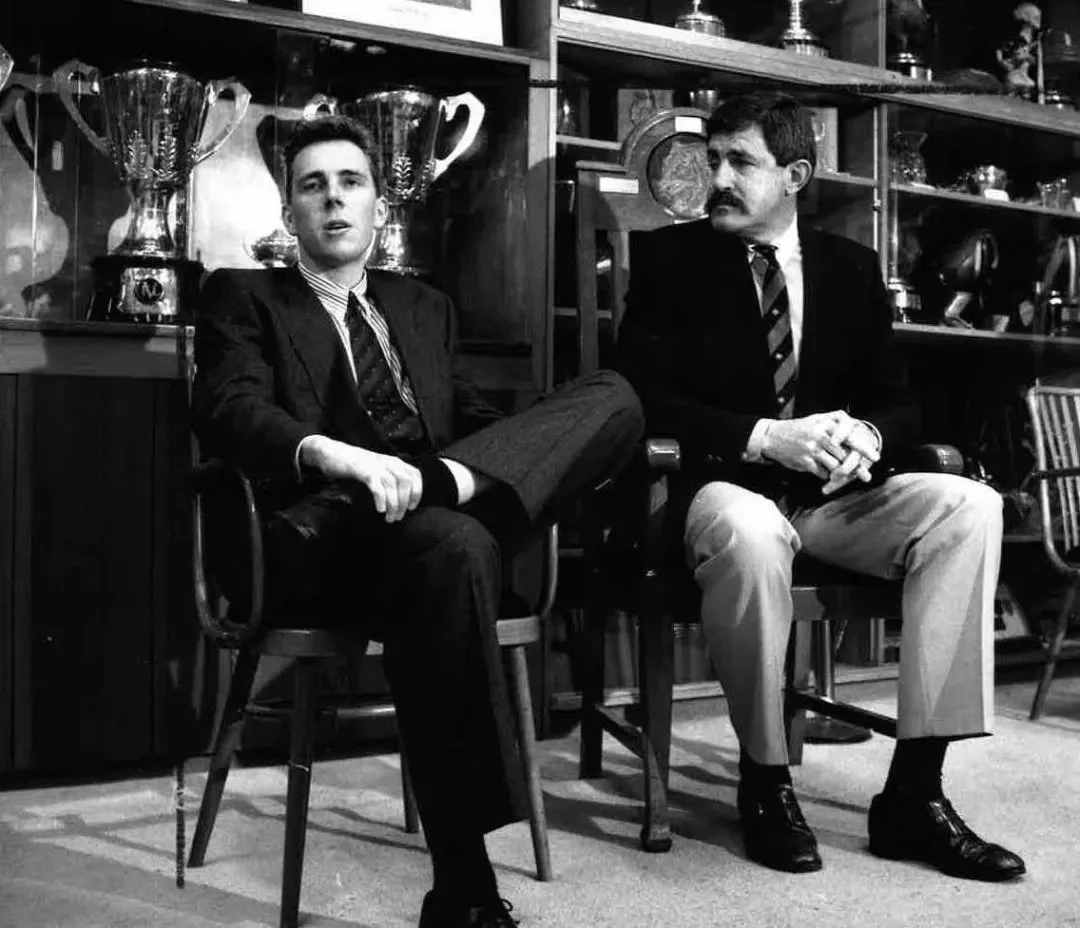The Leader’s Limp
I am reading Dave Grohl’s autobiography “The Storyteller”. Actually, I am listening to it. The intimacy of someone telling their own story, having gone deep to make sense of it all. The understanding and meaning of their story ‘so far’, and the possibility and hopefulness of their story ‘not yet’.
His is a great yarn.
But there is one story that really resonated.
There is a period of his young life where he goes from an almost destitute drummer in LA, his current band fragmenting, questioning everything about his life, but still driven by his deepest calling, the music. Then the phone rings with an invitation to audition with a new group in Seattle.
The group is Nirvana, and within eighteen months, they are the biggest band in the world.
It all begins with an idea. Maybe you want to launch a business. Maybe you want to turn a hobby into something more. Or maybe you have a creative project to share with the world. Whatever it is, the way you tell your story online can make all the difference.
Don’t worry about sounding professional. Sound like you. There are over 1.5 billion websites out there, but your story is what’s going to separate this one from the rest. If you read the words back and don’t hear your own voice in your head, that’s a good sign you still have more work to do.
Be clear, be confident and don’t overthink it. The beauty of your story is that it’s going to continue to evolve and your site can evolve with it. Your goal should be to make it feel right for right now. Later will take care of itself. It always does.
Dave Grohl in Nirvana
Then, as we all know, Kurt Cobain, the songwriter, voice and face of Nirvana, after a torturous few years of heroin addiction, kills himself.
Dave Grohl is only twenty-five.
“What was once my life’s greatest joy had now become my life’s greatest sorrow, and not only did I put my instruments away, I turned off the radio, for fear that even the slightest melody would trigger paralyzing grief. It was the first time in my life that I rejected music. I just couldn’t afford to let it break my heart again.”
In time, he started recording songs by himself. Quietly. Few knew. No expectation, playing all instruments, ending with a shoebox of cassettes that he had no idea what to do with. He even came up with a band name of which he was the only member.
The Foo Fighters.
He then receives an unexpected call. An opportunity to be the stand-in drummer for one of his musical heroes, Tom Petty and his band, the Heartbreakers, for a performance on Saturday Night Live. A few years earlier, Nirvana had debuted the iconic “Seems Like Teen Spirit” on SNL. Given his “wallop” drumming style, he is perplexed and hesitant. He has not played the drums in public since the death of Kurt twelve months earlier. But his efforts in the studio give him just enough confidence to accept this most surprising of invitations.
It goes well, such that Tom Petty asks him to join the band permanently.
His choice, become a Heartbreaker, where he felt welcomed and loved the laid back professionalism and camaraderie, such a difference to the manic experience of Nirvana, but understanding that he would always be known as “that guy from Nirvana”, or the shoebox of cassette tapes.
He goes with the box of tapes.
Idea:
You are never ready.
We all have a shoebox full of cassette tapes.
“Ready” is a concept I often get asked about.
I was appointed CEO of the Richmond Football Club when I was twenty-four.
“Were you ready” is the question that follows.
I wasn’t and knew it, and it scared me. I understood I did not have many (most) of the experiences the role would demand of me, but whatever capacity I did have was such that the club’s board thought I was the best available person for the job, and that gave me just enough belief to accept the opportunity.
I am forever thankful to Neville Crowe, the great Tiger ruckman, called up to be President during the club’s darkest hour when the club needed a hero as much as it needed a President. Neville saw something in me that I had not seen in myself, and he wanted me to work beside him to try to save the Tigers, who were on the brink.
“Cameron is 24 going on 44”, he said at the press conference to announce my appointment.
“No, I am not”, I thought to myself.
Press conference to announce my appointment as CEO of the Richmond Football Club
But you learn a language by speaking it. Every day.
You become a songwriter by writing songs. Then playing them to an audience.
You are only a leader when you lead.
You need to do the real thing.
Any opportunity to lead, do it.
The only alternative to the ‘real’ thing is the ‘pretend’ thing.
There is no lack of ‘pretend’ alternatives, far less efficient and effective, that look nice and shiny, selling false promises, perhaps adding some cred to your resume (not for those who know what they are looking for), but only distract you from the best way.
There are leaders who ‘pretend’ lead, even when they are in leadership roles.
They are called leaders, at least that’s what their LinkedIn profiles and business cards pronounce, who are more likely to make the effort to read an article, listen to a podcast, absorbing the leadership learnings of others, than actually leading.
If you want to learn how to lead, then lead.
Make decisions that matter, with consequences you wake up to, that only you can make.
Decisions made with imperfect information, because if there was perfect information, we don’t need leadership. Decisions make themselves.
Make decisions that build cultures, vision-driven and values-based. Defined and modelled by you, the leader.
Step up. Challenge behaviour. As Rick Charlesworth says, “go in search of friction; otherwise, it appears at the worst possible time”.
To get buy-in, to drive outcomes, to influence, to adapt.
To inspire. To make change.
You will make mistakes, but if you own them, you learn, and by sharing your learnings, and your vulnerability, so do those around you.
Real-world experiences gifting you the feedback needed to grow. To get better.
You are starting to develop a slight limp. What Dan B Allender calls “The leaders limp”. It is your leadership authenticity.
You are now learning to lead. It is hard but is getting just a little bit easier, which is just as well because you need to make room for more hard.
Soon, you start to trust what you bring, something unique to you, self-expressed leadership, which can only be learned by doing, not pretending.
You are building your leadership character and your capability, which people will connect with.
But you survived it, or perhaps you didn’t.
Learnings that become embedded in your soul.
Then the next time you read a book or listen to a podcast, you have context.
You now proudly have the leader’s limp.
Go find that box of cassettes.
Quote:
“If you’re not in the arena also getting your ass kicked, I’m not interested in your feedback. If you have constructive feedback you want to give me, I want it… But if you’re in the cheap seats, not putting yourself on the line, and just talking about how I can do it better, I’m in no way interested in your feedback.”
Brene Brown
I’ve used this quote before, but it seems appropriate.
I struggle with the concept of leadership coaches who have never led.
“Never trust a leader without a limp”.
Recommendation:
…and a timeless song lyric:
Everlong – Foo Fighters
“I wonder, when I sing along with you, if everything could ever feel this real forever?”
I like the acoustic version.
Stay Connected
Please subscribe to our “In the Arena” email.
From time to time to time we will email you with some leadership insights, as well as links to cool stuff that we’ve come across.
We will treat your information with respect and not take this privilege for granted.





